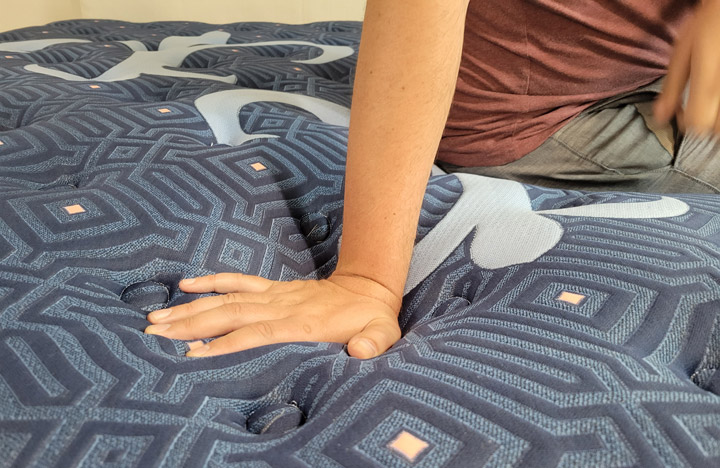In today’s fast-paced and demanding world, getting a good night’s sleep has become a luxury that many people long for. Sleep plays a vital role in our overall well-being, impacting our physical health, mental clarity and emotional balance. However, achieving a restful slumber can often feel out of reach, with various factors like stress, technology and environmental disruptions playing havoc with our ability to attain quality sleep.
By understanding the importance of creating an optimal sleep environment, we can take proactive steps to enhance our sleep quality and wake up feeling refreshed and rejuvenated each morning. From setting the right ambiance to implementing smart habits, working towards a perfect sleep environment can transform our nights and positively impact our days.
In this article, we delve into the essential elements required to create a sleep-friendly environment that promotes relaxation, tranquility, and ultimately, a deep and undisturbed rest.
Importance Of a Good Sleep Environment
Studies show that your environment heavily impacts both the quantity and quality of your sleep. Not getting enough quality sleep can lead to the accumulation of sleep debt and eventually lead to one of many chronic diseases.
How Do Sleep Environments Impact Our Quality of Sleep
Your sleep environment is important, as it can either enable you to achieve deep sleep quickly or wake you up frequently, preventing you from achieving high-quality sleep. If you are constantly waking up, or drifting into light sleep because of external noises, lights or scratchy sheets, you are unlikely to enjoy a high quality of sleep and wake up feeling refreshed.
Nine Ways to Make the Best Sleep Environment
If you want to give yourself the highest chance of achieving deep sleep, pay attention to your environment. Here are nine ways you can make your bedroom more conducive to sleep.
Find a Mattress and Sheets You Love
Sleeping in comfort has a lot to do with the bedding you are using, so make sure you find a comfortable mattress that is good for your back so you don’t wake up with aches and pains. But your mattress isn’t the only thing that ensures you wake up well-rested. To enjoy maximum comfort during the night, use high-quality sheets.

Make It as Dark as Possible
Studies now show that even exposure to a small amount of light while you sleep can impair cardiometabolic function. So it’s important to sleep in a dark room ensuring there are no light disruptors during the night.
This can either be done with blackout curtains to block all light into the room, or by wearing a sleep mask if light within the room is uncontrollable.
Eliminate Distracting Noises
If you sleep in a fairly noisy environment, you are likely waking up a few times throughout the night, or at the very least stirring in your sleep. In this case, a white noise machine can help drown out the loud noises you might be subject to during the night.
Make Sure the Room Smells Pleasant
If bad smells waft into the room while you are sleeping, it could cause you to wake or shift gears into a lighter sleep. This could happen if there are people in the house that stay up late, doing things like cooking or smoking that emit strong odors. In this case, using aromatherapy to create a fresh-smelling environment while you sleep can be beneficial. Even more so if you use sleep-inducing scents such as lavender and peppermint.
Keep Electronics Off
Using electronic devices too close to bedtime will expose you to blue light which throws off your circadian rhythm, making your body believe that it’s still daytime. This can delay the production of melatonin, a hormone that makes you sleepy, which can make it difficult to go to sleep when bedtime rolls around.

Resist Snoozing Your Alarm
Hitting the snooze button can disrupt your circadian rhythm because a large portion of the latter part of your sleep consists of deep sleep, known as REM sleep. When we hit snooze and go back to sleep, it can leave us feeling more sluggish and lethargic than before.
Declutter Your Room
When we go to sleep and wake up in an organized environment, it can elevate our mood compared to waking up to a mess. So ensure your bedroom is decluttered to create a welcoming environment.
Need more space? Consider a murphy bed!
Practice Good Sleep Hygiene
Practicing good sleep hygiene is crucial to getting a good night’s sleep. Along with the other points mentioned in this article, follow some of these guidelines for good sleep hygiene:
- Ensure your room is at the ideal sleep temperature
- Keep your naps short during the day
- Exercise a few hours before bedtime
- Start meditating to relax the mind and body before bedtime
- Go to bed and wake up at the same time every day
Choose the Right Bedroom Color
You might not have thought twice about the color of your bedroom, but did you know that the color of a room can profoundly affect your mood? When choosing a color for your bedroom, keep in mind that warm colors increase energy levels and aren’t great options, while cool colors increase feelings of calm, making them ideal for bedrooms.
Final Thoughts
Creating the perfect sleep environment is an art that holds the potential to transform our sleep quality and overall well-being. By understanding the significance of factors such as lighting, temperature, noise control and technology usage, we can take proactive steps to curate an environment that promotes deep and restful sleep.
FAQs
What makes a good sleep environment?
A good sleep environment is made up of many components, but these are the main ones to keep in mind: It should be a cool environment, devoid of distracting noise and lights. It should also be clean, clutter-free and pleasant smelling.
What type of environment is ideal for sleeping?
A calm environment with no noise or light pollution is the best one for sleeping. It’s also considered ideal to sleep in a cool room, with clean bedding and fresh smells.
Does your sleep environment affect your quality of sleep?
The environment in which you sleep is one of the most important contributing factors to your sleep quality. If there are loud noises or distracting lights in your sleep environment, you are likely to wake up frequently, which prevents you from achieving quality REM sleep.

